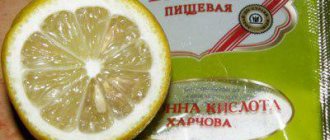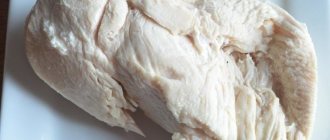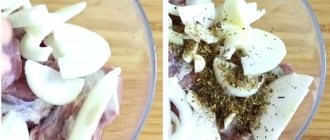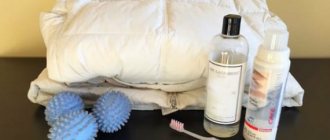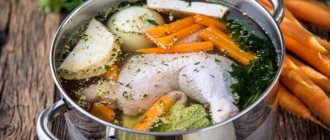To answer the question of whether it is possible to replace lemon with citric acid, it is necessary to clarify for what purpose the replacement is being made. If it is for health improvement and obtaining an identical taste, then no. But in the preparation of most dishes, lemon and citric acid are completely interchangeable components. In cooking, they are used to give foods a pleasant flavor. In addition, acids play the role of preservatives and help maintain the attractive appearance of dishes. They are often used for marinating meat and fish.
How much lemon juice is in one lemon?
Naturally, the larger the lemon, the more juice you will squeeze out of it. On average, one small lemon will yield 2-3 tablespoons of juice, one medium-sized lemon will yield about 4 tablespoons, and a large lemon will yield almost 5 tablespoons of lemon juice.
Interesting materials:
How to clean powder from a washing machine? How to clean a washing machine using soda? How to clean rust from a countertop? How to clean silicone from a countertop? How to clean rhinestones from glue? How to clear Google search bar? How to clear the search bar? How to clean the joints between tiles in the bathroom? How to remove the handle from a bag? How to clean a ballpoint pen from a bag?
Methods of application
As noted above, citric acid is a complete analogue of the fresh product. Therefore, if necessary, you can safely replace the juice with citric acid without worrying about the consequences. Here are some practical recommendations:
- At high temperatures, you need to dissolve a little lemongrass powder in cool water, and then rub the resulting solution into the area around the ankles and arms. Approximately 10 minutes after the procedure, the temperature will begin to decrease.
- The drink is also useful for insomnia. Of course, it is better to squeeze a slice of fresh lemon into a glass, but if this is not available, replacing the fruit with citric acid is quite suitable.
- A bag of acid can also help those who want to lose weight. An effective remedy can be obtained by diluting a teaspoon of powder in a liter of water. True, you should not get carried away with such a replacement, since the calorie content of citric acid is 250 units, versus 16 for fresh fruit.
- In home cosmetology, citric acid diluted with water can also play the role of “first violin” if used as a bleaching agent. You can also freeze the solution and then wipe your face with cubes in the morning. Regularly performing this procedure will return freshness and a healthy glow to the skin.
- Making homemade muffins is incomplete without lemon. True, in this case it is not diluted with water, but simply mixed with soda to enhance the process of carbon dioxide release.
If you want to enjoy the taste of the drink, you must not forget about its usefulness. Under no circumstances should citric acid be diluted with boiling water, as this will destroy vitamin C.
How to drink the drink correctly
When using the infusion, you must follow several rules:
- do not exceed the recommended daily intake (2-3 cups);
- have tea in the morning or afternoon (at night the remedy is taken only in case of hypothermia or a cold);
- add citrus only to warm water (a hot drink negatively affects the vitamins in lemon);
- before pouring, mash a slice of fruit with sugar or honey;
- do not take medications with infusion;
- Do not infuse the drink with yesterday's brew.
Recipes for delicious lemon tea
Delicious lemon tea can be prepared using the following recipes:
- Cinnamon. Pour 0.5 liters of boiling water 1 tsp. dry tea leaves, dilute in 1-2 tbsp. water a small amount of ground cinnamon. The whole stick can be added directly to the teapot. After cooling, mix both ingredients and add lemon.
- With raspberries and mint. Place dry mint and tea leaves into a press filter and add hot water. If fresh twigs are used, they can be crushed together with raspberries and 1 tsp. honey After preparing the infusion, pour it into a cup with raspberries, stir and let stand for 1-2 minutes.
- With ginger and sea buckthorn. Pour 1 tsp hot water. tea leaves In a bowl, crush 2-3 slices of ginger and lemon with 1-2 tsp. honey Grind 100 g of sea buckthorn in a blender and add to a cup. Pour the warm infusion and let it brew for 5 minutes under the lid.
- With hibiscus and citrus fruits. Pour 1 tsp. dry hibiscus 400-500 ml boiling water. After brewing, add a slice of grapefruit, lemon and orange. Crush the fruit with a spoon and leave for 3-4 minutes.
When using green tea, it is recommended to take varieties and compositions with jasmine.
What can replace vinegar for dough?
Vinegar can be replaced with a few drops of lemon. The dough turns out fluffier, airier and without the vinegar taste.
Interesting materials:
Which scientist proposed the term valeology to denote human health? Who wrote A person doesn’t need enough to be at home? Who determines the nationality of each person? Who is Homo Erectus? Who are the elderly? Who voiced the green man in Wreck-It Ralph 2? What is the zodiac sign of people born on February 19? Who gave people fire? Who came first, Batman or Iron Man? Who won a second Oscar for Rain Man?
Proportions for replacement
It is impossible to calculate exactly how much “lemon” you need to take so that its acidity matches the juice of one lemon. Firstly, citrus fruits come in different sizes, and secondly, they differ in juiciness and thickness of the peel. Thirdly, some varieties are very sour, others are more watery. Therefore, all calculations of proportions will be approximate:
- 100 ml lemon juice = 100 ml water and 16 g citric acid.
- Juice of one lemon = 30–40 ml of water and 5 g of lemon juice (teaspoon).
- 1 tbsp. spoon of lemon juice = 1 tbsp. a spoonful of water and 0.5 teaspoons of lemon.
It is advisable to taste the diluted liquid. If it is not sour enough, add lemon. And if it’s the other way around, add water.
You definitely shouldn’t replace lemon with acid to boost immunity or improve health. It does not benefit the body and in high doses can cause irritation of the mucous membranes, burns, stomach pain, burning, and nausea.
When is it possible?
Lemon juice can be replaced with acid from a pack if the dish is planned to be heat treated. With strong heating, beneficial substances still evaporate from the juice. The only thing is that the dish will not have a lemon smell. But this will not affect the taste at all.
Add “lemon” instead of lemon juice:
- in marinades for fish and meat;
- in jam;
- in mousses and creams;
- in syrups and sauces;
- in meringues, fondants;
- into baking dough;
- in soft drinks.
We recommend: Do strawberries deserve universal love: the benefits and harms of red berries
But it is not recommended to spray prepared dishes with the solution. This will not have the best effect on the taste.
Useful tips
The reader may not be aware of the following important properties of lemon:
- If it becomes more and more difficult to fight depression, you need to cut the fruit into slices and spread it around the apartment. The smell of this southern fruit lifts your spirits well.
- Sunny citrus also helps with insomnia. You just need to squeeze a slice of lemon into a glass of water before bed. It will be much easier to fall asleep after such a drink.
- Lemon also helps with calluses. First you need to steam your feet, and then apply a slice of fruit to the damaged skin and put on socks. True, it will take from 10 to 15 similar procedures to get rid of the callus forever.
- If not only the taste is important, but also the benefits, then you should not add lemon to boiling water, as this will destroy vitamin C.
This fruit with a bright skin has a lot of useful properties. He can be a therapist, a nutritionist, and a cosmetologist.
Answers:
| Sherl +2 this is the solution 4g. citric acid to 100 ml. water. On average it is. There are many different varieties of lemon, some sour, some sweet. But the average lemon juice has 4%. Mix and measure yourself 3 tbsp. or as much as needed |
| Stafford +6 this is the solution I usually use this ratio: 1 lemon is approximately equal to 8 g of dry citric acid (heaped teaspoon). Dry citric acid should be diluted with water 1:4, that is, if we take one teaspoon of citric acid, then we need to add four teaspoons of water to it. But, you understand, everything is very relative - both the size of the spoon and the acidity of the lemon. |
| marfutak +2 this is the solution Google is here to help you
One teaspoon contains 5 grams of citric acid. |
| Igor02 +2 this is the solution Sorry, maybe not quite on topic. But you can make natural lemon juice yourself. This will require a little patience. No matter how much you look in retail outlets or supermarkets for 100% natural lemon juice, you will not find it. You can write anything you want. To make natural 100% lemon juice, you will need lemons, depending on how much lemon juice you want to make. The hardest part is peeling the lemon, just like you're peeling an orange. Pass the peeled lemons through a juicer, preferably an auger one. Someone can extract juice from lemons with a specially designed citrus juicer. After extracting the juice from the lemons, place on low heat after boiling, and boil for 5 minutes over the lowest heat, strain through cheesecloth into pasteurized bottles or jars, and screw on the lids tightly. Here is a 100% natural juice that can be stored in the refrigerator for a long time. If you make a liter bottle of lemon juice, it will last for a very long time. |
Recipe examples
Examples of some recipes for making tea with lemon.
Classic recipe
The easiest way to cook. Black (or green) tea is brewed in the usual way, with a slice of lemon placed in a cup. After a few minutes of infusion, the drink can be drunk.
Tea with lemon and milk is an unfortunate combination of ingredients. Citric acid ensures the curdling of milk and the formation of flakes. The drink loses its taste and aesthetic appearance.
With lemon and honey
To prepare you will need tea leaves, water, lemon, honey. The recipe is also simple and is probably familiar to everyone since childhood. A lemon slice is dipped into the brewed and already not hot tea. To make the drink as healthy as possible, honey is added at a tea temperature of about 40°C. The beekeeping product is added to taste - 1-2 tsp. per cup.
With lemon and mint
Have to take:
- 4 mint sprigs (tops);
- 2 slices of lemon;
- 2 tsp tea leaves (black tea);
- water (per 1 teapot).
The mint and tea leaves are placed in a pre-heated kettle (it is convenient to use a press filter), poured with a small amount of boiling water and infused for a couple of minutes. Then lemon is added there, the kettle is completely filled with hot water, and everything is infused again for about 5 minutes.
Advantages and disadvantages of replacing juice with acid
Lemon contains many beneficial substances and aromatic essential oils. Its main advantage is its benefits to the body. It has tonic properties, improves immunity, improves memory and prevents inflammatory processes.
Lemon and citric acid have only one similarity - a sour taste. "Limonka" is a chemical product. It is obtained through the biosynthesis of sugary substances. Although previously it was actually obtained from citrus fruits.
Pros of using citric acid in dishes:
- low cost;
- compactness;
- long shelf life;
- versatility;
- good solubility in any liquid;
- Allowed for people with allergies to citrus fruits.
“Limonka” loses to juicy citrus only in several respects:
- has a sour, but completely unnatural, unpleasant taste;
- has no smell;
- does not contain vitamins and nutrients.
A pack of citric acid (25 grams) can replace 4-5 lemons, which is equivalent to 150 ml, or 10 tbsp. l, juice.
